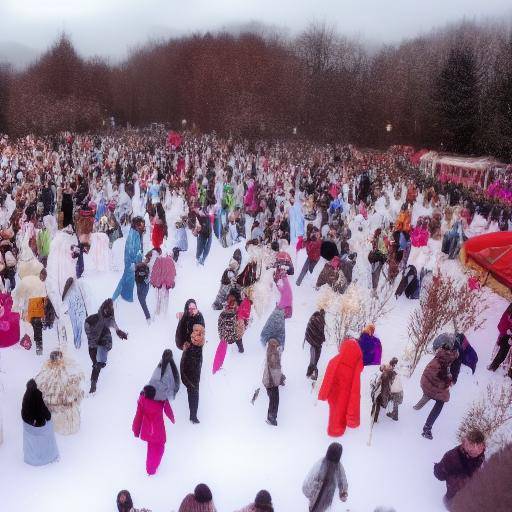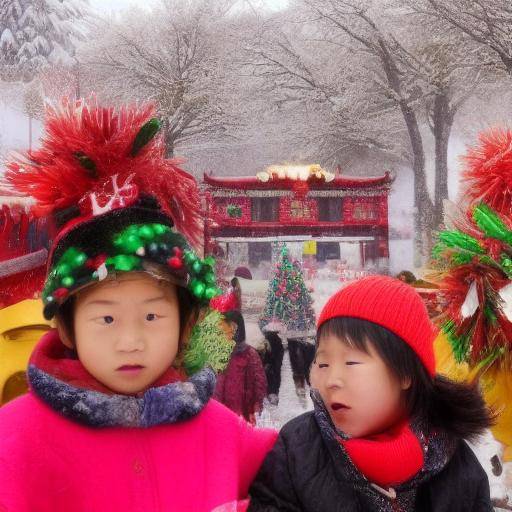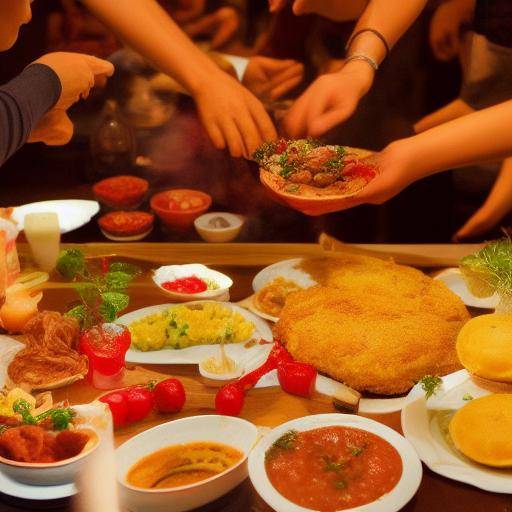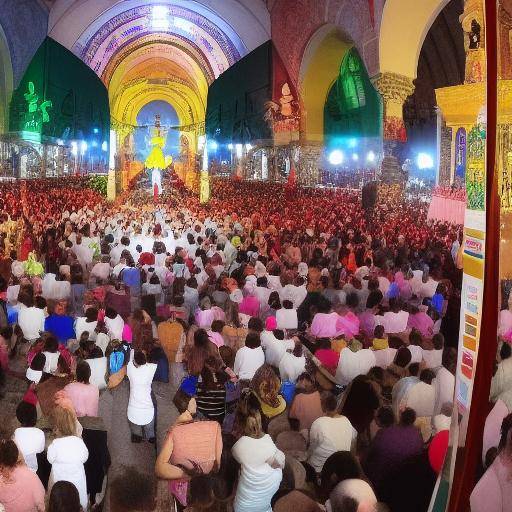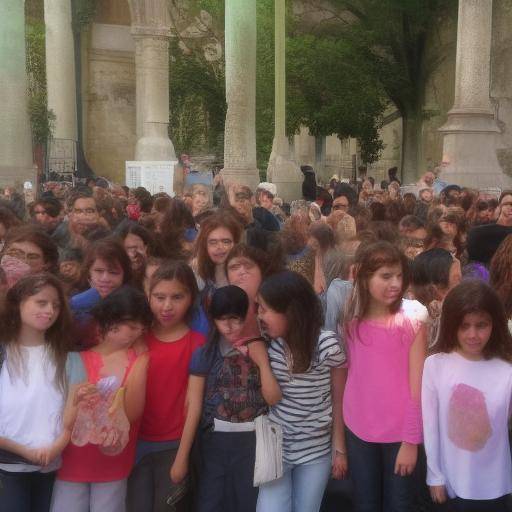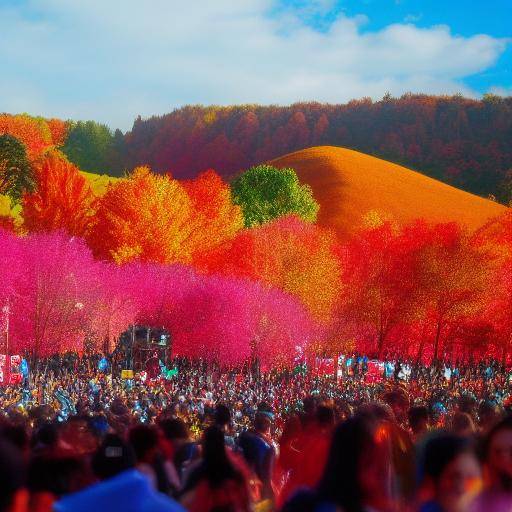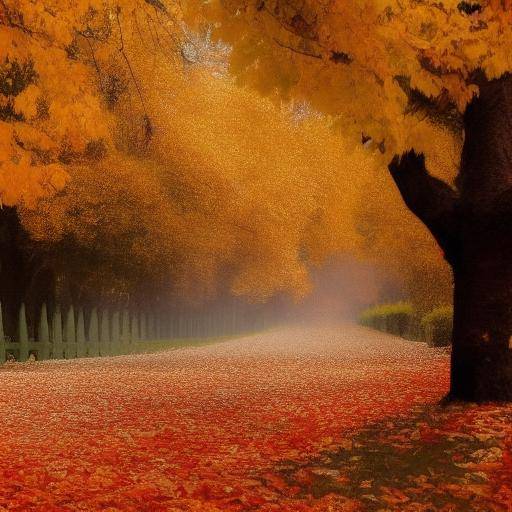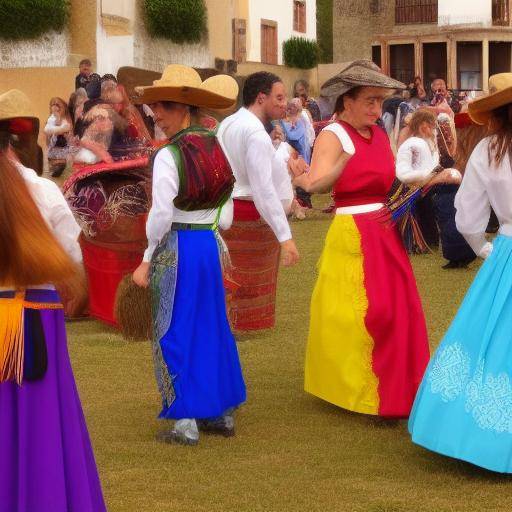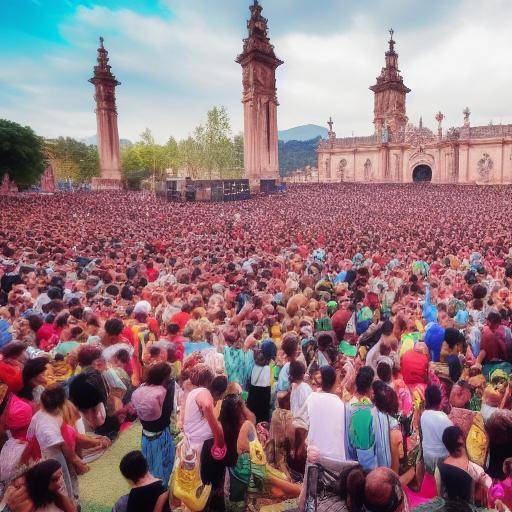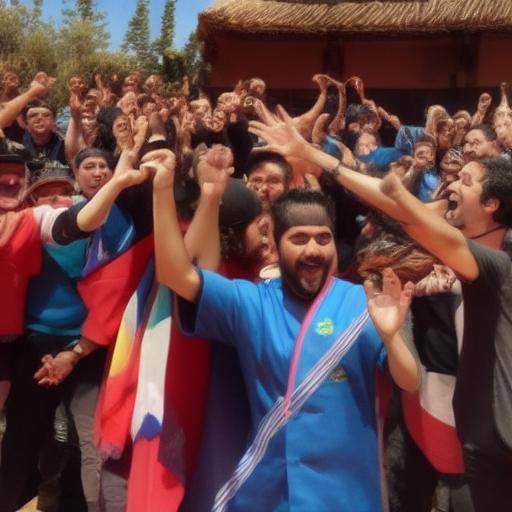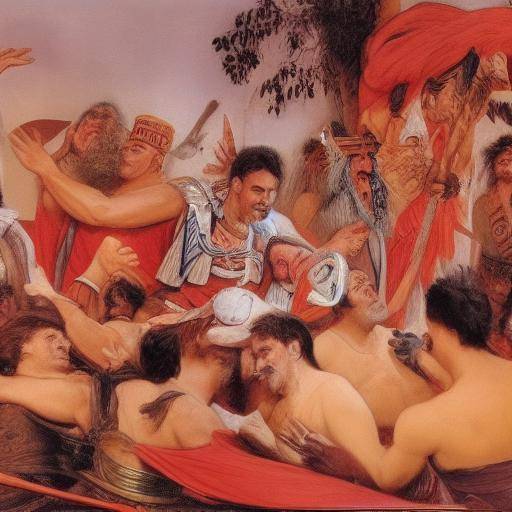
Autumn is a time that evokes warm and nostalgic feelings in many cultures around the world. During this season, there are various traditions and celebrations that reflect the cultural wealth and diversity of each region. In this article, we will explore autumn traditions, celebrations and global festivals that mark this special season in different parts of the world. From harvest festivals to traditional celebrations, we will discover how autumn is a moment of unity, gratitude and renewal in many cultures.
Introduction
Autumn is a magical moment in which nature is transformed with vibrant colors and people gather to celebrate abundance and connection with the earth. In this article, we will explore the different ways in which communities around the world celebrate this season, from harvest festivals to ancestral traditions. We will discover the stories and meanings behind these practices, as well as the different ways in which these celebrations reflect the cultural diversity of our global societies.
Autumn Traditions: Roots and Meanings
Autumn has been a time of great importance in many cultures throughout history. From ancient pagan festivities to rituals of gratitude, autumn has been celebrated in various ways in different cultures. In this section, we will explore the historical roots and deep meanings that underlie autumn traditions around the world.
History and Background
The autumn has been celebrated for centuries as a moment of harvest, abundance and gratitude. In many ancient cultures, this season marks the end of the harvest and the beginning of a winter preparation period. In different societies, rituals and festivals are performed to honor the earth and give thanks for the fruits obtained.
Autumn celebrations have ancestral roots and have evolved over time, adapting to cultural and social changes. By exploring autumn traditions in different parts of the world, we can appreciate the historical wealth and profound meaning that these holidays have for the communities that celebrate them.
Detailed Analysis
Autumn traditions not only have a historic significance, but also play a crucial role in connecting communities with nature and in preserving their cultural values. Through rituals, dances, music and gastronomy, these celebrations reflect the intimate relationship between humanity and the environment, as well as the importance of gratitude and solidarity.
In this section, we will explore in detail the traditions of autumn in different countries, highlighting the diversity of practices and customs that characterize this season. From Thanksgiving in the United States to the Moon Festival in China, we will discover how these celebrations offer us a unique vision of the cultures and traditions of each region.
Exhaustive examination
As the world moves towards the modern era, autumn traditions have experienced changes and adaptations to meet the needs of contemporary societies. This comprehensive review will allow us to analyze closely how autumn traditions have evolved over time and how they continue to be relevant today.
We will explore how these celebrations reflect the values and beliefs of communities, as well as their impact on the preservation of cultural heritage and the promotion of sustainable tourism. We will also examine how autumn traditions often transcend national borders, promoting intercultural understanding and global cooperation.
Autumn Celebrations in Different Regions
Autumn celebrations are vibrant and diverse, reflecting cultural wealth and human creativity in different parts of the world. From vintage festivals to sunset ceremonies, each region has its own traditions and rituals that make autumn a unique and special season. In this section, we will explore some of the most outstanding autumn celebrations in different regions of the world, highlighting their particularities and cultural meanings.
North America
In North America, autumn is a time of great celebration, marked by harvest festivals and thanksgiving ceremonies. Thanksgiving in the United States and Canada is one of the most emblematic holidays in the region, where families meet to enjoy traditional banquets and express gratitude for the blessings received. The parades, the decoration with pumpkins and the preparation of dishes such as roast turkey are rooted traditions that reflect generosity and family union.
Europe
In Europe, autumn is full of deep-rooted traditions that reflect the deep connection with land and natural cycles. In countries like Germany, Oktoberfest is a popular festival that celebrates beer, traditional food and folk music. In the UK, the Halloween holiday is celebrated with costumes, hogueras and the traditional size of pumpkins known as "jack-o'-lantern". These festivities show the diversity of traditions that coexist on the European continent, each with its own particular rituals and meanings.
Asia
In Asia, autumn is celebrated with a variety of festivals that reflect ancient traditions and beliefs. In Japan, the Moon Festival, known as Tsukimi, is a celebration that pays tribute to the change of season and natural beauty. During this festival, families gather to contemplate the full moon and enjoy special meals like the Mochis, a tradition that has endured over the centuries. In China, the Mid Autumn Festival is an important holiday in which moon cakes are shared and colorful parades are performed, symbolizing unity and family harmony.
Africa
In Africa, autumn is a season of celebration and connection with cultural roots. In South Africa, the Heritage Month, held in September, is an opportunity to honor the country's cultural diversity. During this month, festivals, concerts and events highlight the traditional aspects of the different communities. The Month of Heritage is an expression of pride and respect for the traditions and history of South Africa.
Latin America
In Latin America, autumn celebrations are impregnated with ancestral traditions and bonds with nature. In countries such as Mexico, the Day of the Dead is a festival that honors the deceased loved ones through ornamented altars, food offerings and colorful parades. In other countries such as Peru, Inti Raymi is a ceremony that celebrates sun and fertility, highlighting the importance of land and its cycles in the life of the Andean communities.
Global Fall Festivals: Union and Diversity
Autumn festivals are events that unite people from diverse cultures and backgrounds, offering the opportunity to celebrate the richness of humanity. In this section, we will explore some of the most prominent autumn festivals at the global level, highlighting their impact on promoting intercultural understanding and international cooperation.
Oktoberfest
The Oktoberfest is one of the most famous autumn festivals in the world, held in Munich, Germany. During this sixteen-day festival, attendees have the opportunity to taste a wide variety of local beers, enjoy traditional music and participate in cultural activities. The Oktoberfest attracts visitors from all over the world and is a testimony to the ability of autumn to unite people around common traditions and celebrate the joy of life.
Chuseok Harvest Festival
In South Korea, the Chuseok festival is an ancestral celebration that honors the ancestors and the fruitfulness of the earth. During this festival, families gather to perform traditional rituals, share special meals and participate in cultural activities such as ssireum, a form of traditional struggle. Chuseok is a moment to reflect on the importance of family and unity, highlighting the values rooted in Korean culture.
Thanksgiving Day
Thanksgiving in the United States is a festival that joins families and friends around the table, sharing traditional foods such as turkey, mashed potatoes and pumpkin pie. This festival is impregnated with a spirit of gratitude and generosity, highlighting the importance of recognizing the blessings received and sharing with those around us. Thanksgiving is a reminder of the importance of family, friendship and solidarity in everyday life.
Festival de la Luna
The Moon Festival is a festival that takes place in several Asian countries, including China, Vietnam and Korea, to commemorate the full moon coming in autumn. During this festival, families gather to enjoy banquets, perform traditional rituals and contemplate the natural beauty of the full moon. The Moon Festival highlights the importance of family, harmony and unity, providing a space for reflection and gratitude.
These global autumn celebrations show the diversity and wealth of cultural traditions around the world, highlighting the importance of the connection with nature, gratitude and unity. Through these festivals, people have the opportunity to share their traditions, learn from other cultures and celebrate the beauty and diversity of human experience.
Conclusion
In conclusion, autumn traditions and celebrations around the world reflect cultural diversity, gratitude for the nature and importance of human connection. From harvest festivals to ancestral rituals, autumn is a time to reflect, share and celebrate the abundance of the earth. Through global traditions and festivities, people can unite around common values of unity, respect and gratitude, thus promoting harmony and collaboration at the global level.
While autumn traditions and celebrations vary throughout the world, they all share a same spirit of connection with nature, gratitude and celebration of life. By exploring and appreciating these cultural practices, we can enrich our understanding of the world and foster greater appreciation for human diversity.
Frequently asked questions
1. What are some less known but fascinating autumn traditions?
There are numerous autumn traditions in various cultures that are less well known but highly fascinating. For example, in Ireland, the Samhain festival marks the beginning of the new year and is a festival linked to old Celtic beliefs. In Japan, the Aki Matsuri festival is an occasion to thank for the harvest and celebrate nature.
2. What is the origin of Thanksgiving in the United States?
Thanksgiving in the United States has its origins in the tradition of thanking for the harvest and blessings received. The festival dates back to the first European settlers who arrived in America and established the tradition of giving thanks for the abundant harvests.
3. How do autumn traditions differ in the northern hemisphere and the southern hemisphere?
Autumn traditions in the northern hemisphere are often associated with crop harvesting before winter, while in the southern hemisphere, autumn marks the transition to spring and festivities are often linked to renewal and rebirth.
4. What is the importance of the Moon Festival in Chinese culture?
The Moon Festival, known as Zhongqiujie in China, has great cultural and family importance. The festival celebrates family harmony, unity and love, being an occasion to reunite the family, enjoy the beauty of the full moon and share traditional meals.
5. What is the oldest autumn festival in the world?
The oldest autumn festival in the world is probably that of Samhain, of Celtic origin, who then merged with the Christian Halloween festival. This holiday marks the end of the harvest and the beginning of the new Celtic year.
6. What is the importance of food in the autumn celebrations?
Food plays a key role in the autumn celebrations, as it reflects the generosity of nature and promotes family and community union. Seasonal foods, such as pumpkins, apples, and nuts are usually protagonists in traditional autumn dishes in different cultures.
At the end of the article, readers are expected to have a deeper understanding and appreciation for the varied traditions and celebrations that mark autumn around the world, and how these cultural practices reflect diversity, gratitude and the connection with nature.

